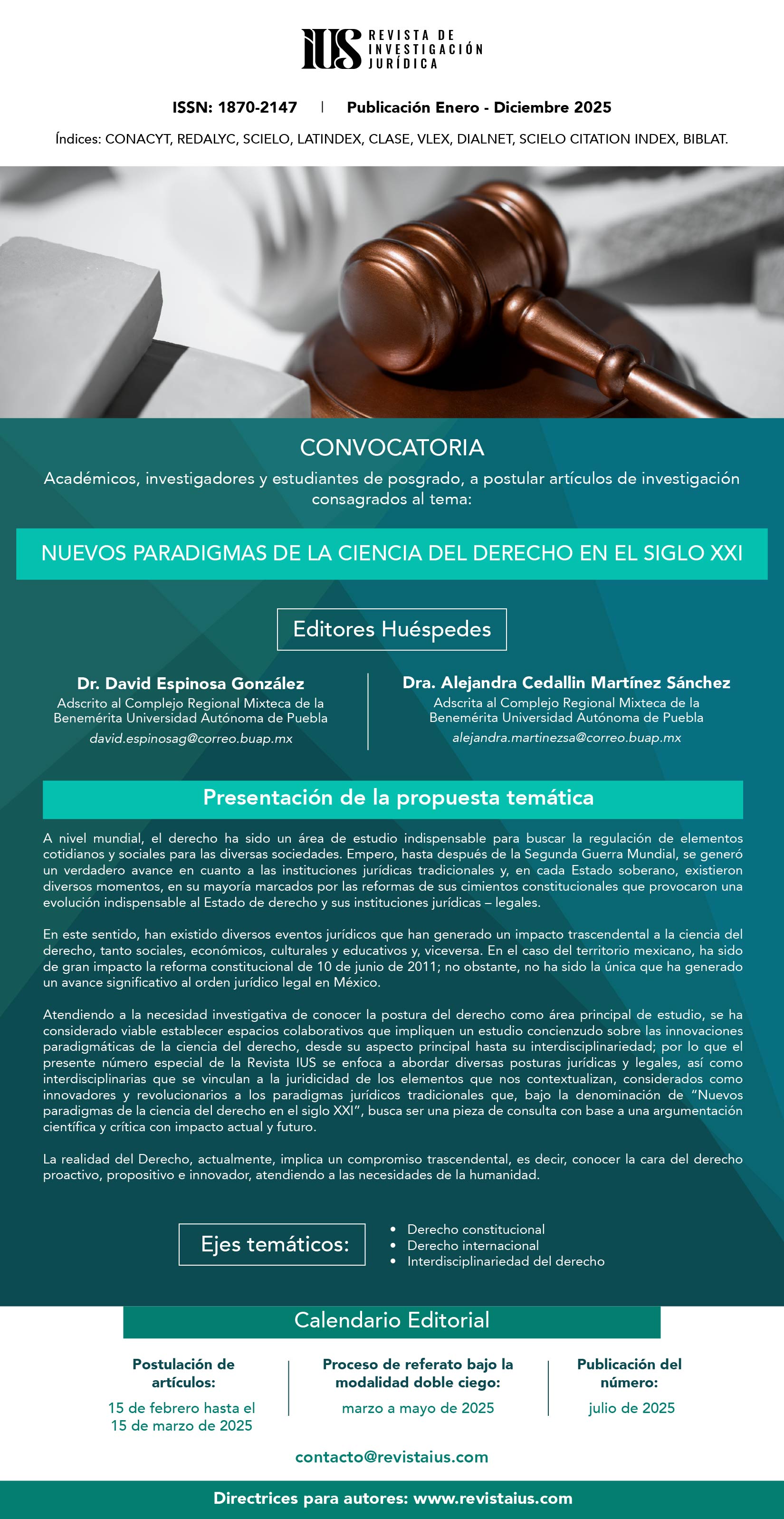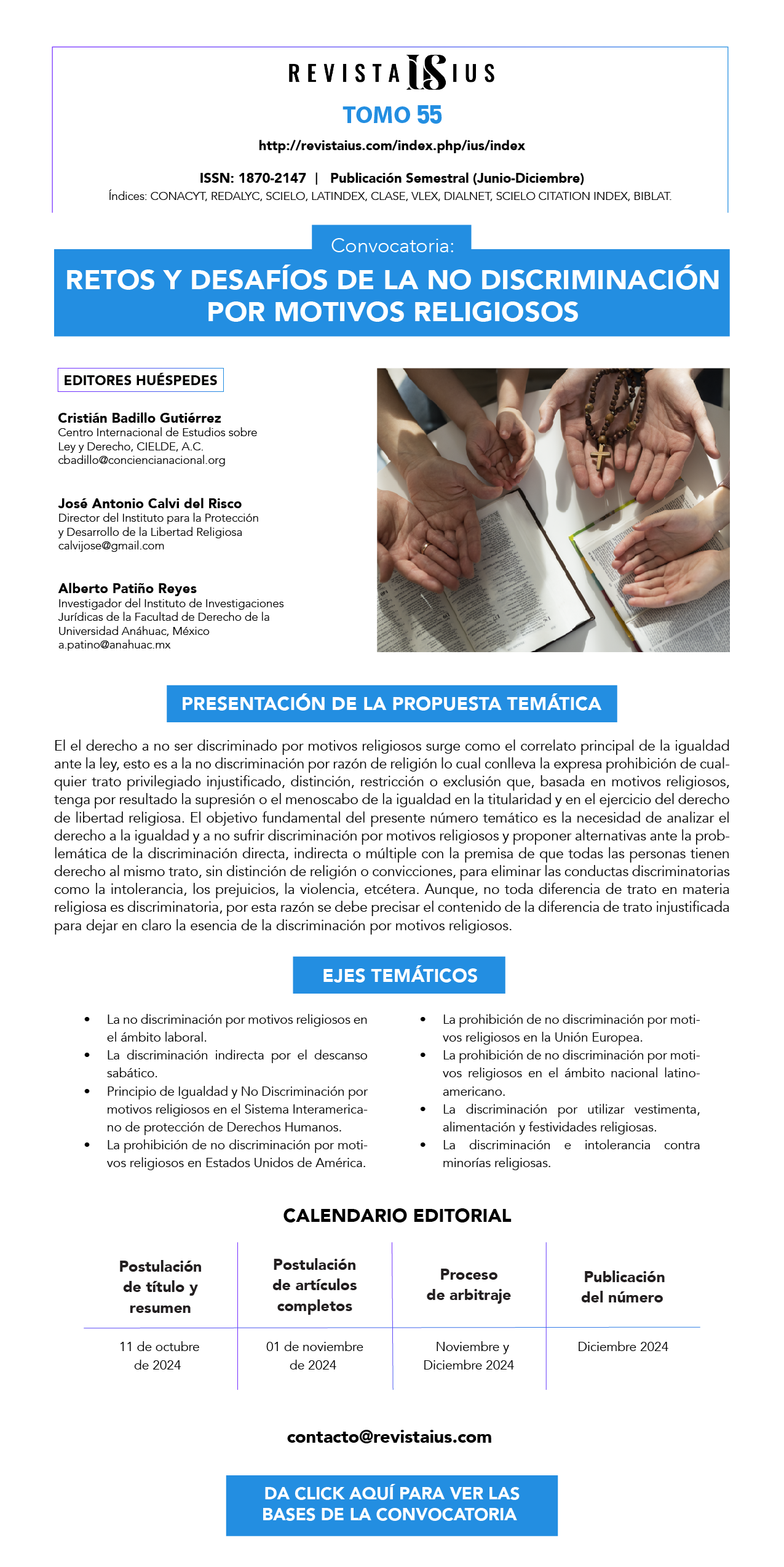The Crime of Maritime Piracy in the Arctic Ocean, the Nordic Region and the Baltic Sea
DOI:
https://doi.org/10.35487/rius.v17i51.2023.920Abstract
This paper investigates the piracy of the boreal and
Baltic region; it will raise the parallelism between the
aristocracy and this crime, to verify that the most
prominent sea bandits in this region, had a noble title,
and if it implied transcendence towards its current
regulations. The historical aspect of the crime will
be developed addressing its emblematic characters,
locating the representative characteristics of the
pirates. The current penal codes of the region will be
analyzed, locating the penal types that contain the
figure, studying their premises, also the legislations of
those countries victimized by pirates will be analyzed,
to determine a normative pattern and establish the
existing correlation; the assumption of those nations
that typify piracy implicitly will be delimited, and those
codifications that lack the figure will be pointed out;
looking for historical and legislative convergences.
Germany will also be included, although geographically
it does not correspond as such, it was in Hamburg
where this type of piracy was eradicated, which makes
its study necessary. Finally, a deductive methodology
applied by focusing on the subject will be used, since the
premises in the criminal typology will be used to deduce
the conclusions drawn.
Downloads
Downloads
Published
Issue
Section
License

This work is licensed under a Creative Commons Attribution-NonCommercial-ShareAlike 4.0 International License.
Revista IUS, published by the Legal Sciences Institute of Puebla A.C., is distributed under the Creative Commons Attribution-NonCommercial 4.0 International (CC BY-NC 4.0) license.
We authorize collaborators to upload a copy of their published work on their personal websites or any Open Access repository, provided that Revista IUS is specifically cited as the original source, indicating the year and issue of the respective example and adding the link to the webpage on which this publication can be freely consulted in toto and without charge: http://www.revistaius.com
Readers are free to:
Share, copy and redistribute the material via any medium or format.
The licensor cannot revoke these freedoms as long as you follow the license terms.
Under the following terms:
Attribution: You must give appropriate credit, provide a link to the license, and indicate if changes were made.
You may do so in any reasonable manner, but not in any way that suggests the licensor endorses you or your use.
NonCommercial – You may not use the material for commercial purposes.
If you remix, transform or build upon the licensed material, its distribution is not permitted.
Charges for managing articles: Revista IUS will not charge for receiving, processing or publishing articles (Article Processing Charge, or APC) submitted by authors.





